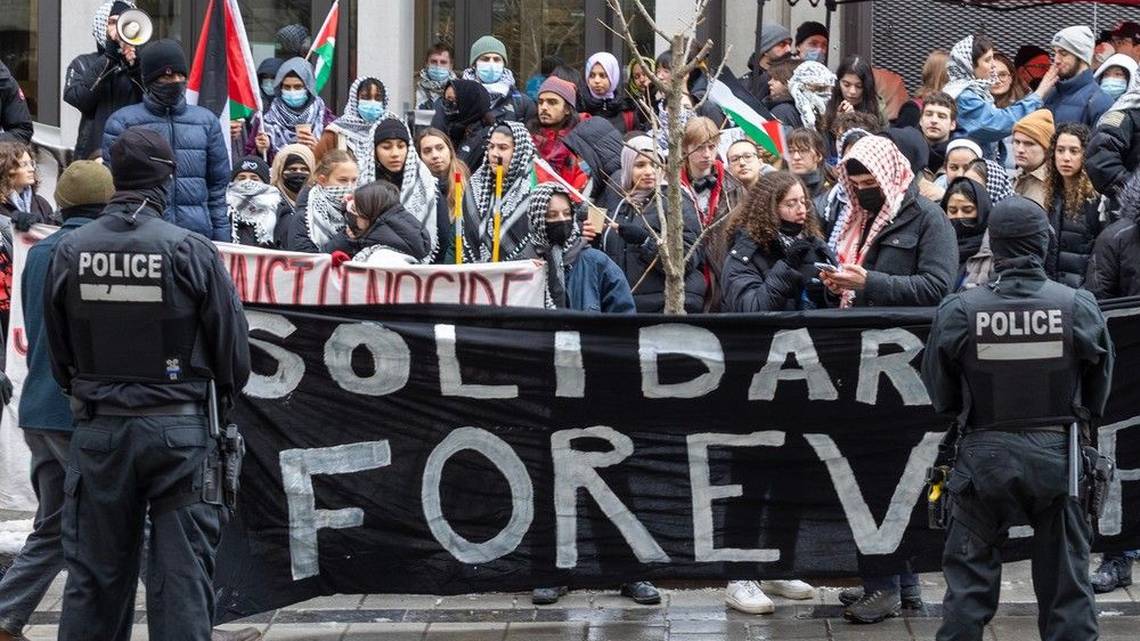Quebec Court Bars Pro-Palestinian Protesters at McGill University
Legal intervention amidst escalating campus unrest

Quebec Court Bars Pro-Palestinian Protesters at McGill University
Legal intervention amidst escalating campus unrest
Backdrop: campus protests and institutional response. In 2025 Canadian universities faced a wave of pro-Palestinian protests that in some places evolved into sustained occupations of administrative buildings and disruptions to campus life. At McGill University, administrators sought a judicial remedy when peaceful protest crossed into actions that, in the university’s view, blocked entry, disrupted exams, and risked property damage and safety. The Quebec Superior Court granted a temporary injunction that prohibited demonstrators from engaging in obstructive conduct, reflecting a judicial balancing act between protecting freedom of expression and ensuring continuity of educational operations and safety.
Legal framework and judicial balancing. Canadian constitutional law strongly protects freedom of expression, and courts are cautious before curtailing peaceful protest. However, rights are not absolute — the courts will uphold reasonable limits that protect other rights and public order. The McGill injunction was narrowly tailored: it targeted conduct that blocked access points, interfered with classes, or posed safety risks, while leaving space for lawful demonstration rights in non-obstructive circumstances. The judicial reasoning emphasized proportionality: the measure was temporary, specific, and calibrated to restore campus functioning while minimizing intrusion into legitimate expression.
Procedural aspects and emergency relief. Universities often seek interlocutory injunctions when they face immediate operational risk. Courts evaluate whether there is a serious question to be tried, whether damages would be an adequate remedy, and whether the balance of convenience favors interlocutory judicial relief. In McGill’s case, the court found these thresholds satisfied: the university demonstrated imminent disruption to exams and safety, a difficult-to-quantify injury that remedies after the fact could not adequately redress. The injunction therefore provided a short window for dialogue and administrative measures to re-establish order.
Public reaction and the politics of campus protest. Reactions to the injunction were intensely polarized. Student activists and civil rights groups criticized the university and the judiciary for “criminalizing” protest, arguing that universities must preserve open forums for political debate. Conversely, faculty members, administrators, and some student bodies worried about the impact on academic continuity and non-participating students’ rights to education. The dispute raised a broader societal question: how should democratic institutions balance robust political expression against the rights of third parties and the need for safe, functional public spaces?
Policy takeaways for universities. The McGill episode has practical lessons for higher-education institutions. First, transparent protest policies that distinguish between peaceful assembly and obstructive occupation can reduce ambiguity and improve compliance. Second, investment in mediation, student-admin dialogue, and rapid crisis response teams can defuse tensions before they reach the courtroom. Third, public universities may face pressure to involve local police or seek judicial remedies when internal governance mechanisms fail to resolve escalating misconduct. The legal record suggests that courts are prepared to grant narrowly tailored relief to protect safety and the right to education, but they are also wary of overbroad suppression of dissent.
Conclusion: dialogue, not just injunctions. The McGill injunction was temporary but significant. It underscored the need for universities, students, and civil society to work cooperatively to manage contested campus politics. Legal remedies will remain available for acute disruptions, but long-term stability rests on policies and relationships that respect both free expression and institutional missions. The episode will likely inform how Canadian universities prepare for future protest cycles—balancing rights, responsibilities, and the central educational mission.
Need Legal Help?
Contact us today for a free initial consultation to discuss your legal needs and how we can help.
Get a Free Consultation